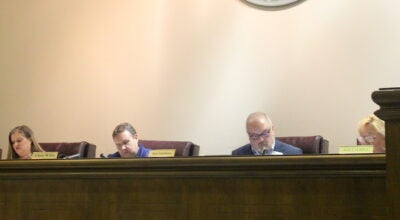Governor strikes down Hoover hospital plan
Published 7:14 pm Saturday, January 31, 2009
A letter sent Friday from Gov. Bob Riley to the State Health Planning and Development Agency halted plans for a new hospital in Hoover.
Riley said his main concern was the new hospital would create increased Medicaid costs for the state.
“My concern that the additional of 140 acute care hospital beds, under the current proposal, will result in additional costs to Medicaid, which would certainly adversely impact the state Medicaid budgets at this critical time,” Riley said in the letter.
Mayor Tony Petelos said Riley’s decision took him by surprise. The mayor and staff of the governor’s office were supposed to meet next Tuesday to discuss the city’s healthcare need.
“We’re very sad the governor did not approve the proposal,” Petelos said. “It’s a setback, but we’re not going to give up.”
Petelos said there are as many as 60 cities smaller than Hoover that have a hospital. Most of those cities also don’t have gridlocked traffic that cuts off many of their citizens from the nearest hospital, Petelos added.
“If you’re going to have a heart attack in Hoover don’t have it at 5 o’clock during rush hour traffic,” Petelos said.
The proposal, submitted by Baptist Health System, would have amended the state health plan to allow a hospital to locate in Hoover despite it being located in an over–bedded region. Hoover sits in both Jefferson and Shelby Counties, which have 1,513 and 21 excessive beds, respectively.
Ross Mitchell, vice president of communications for Baptist Health, said the system planned to continue working on the issue.
“Our research and planning demonstrate there is definitely a need for a hospital in Hoover,” Mitchell said. “We will continue to build on our established presence in Hoover … and continue our efforts to secure a Hoover hospital.”
Mitchell added that the amendment would not create additional beds, but move 140 already licensed beds.
Medicaid Commissioner Carol Steckel expressed her opposition just days before state health planners gave unanimous approval for the change. In a letter to the SPHDA, she said the addition of more beds would increase state Medicaid costs.
“If a new hospital is built, the cost of the new hospital (and the care it provides) would be added to the costs of the other hospitals in the area, resulting in an increased overall cost to Medicaid,” Steckel said in an e–mail.
She went on to add that the new hospital would naturally take steps to fill the new beds in order to have a high occupancy rate which would in turn decrease occupancy rates at other local hospitals. She said the additional costs incurred by those hospitals would then be passed on to Medicaid.
Petelos said he found it interesting that Steckel waited so long to oppose the plan. He also said her argument didn’t make sense.
“She claims we are in a Medicaid crisis. We have been in a Medicaid crisis since the 80s,” Petelos said. “If we look at this argument then I guess nothing would have been built in the past 20 years.”
Petelos said he wants the governor to consider all the facts because the health and safety of Hoover residents is at stake.
“Our fire and medical responders answered over 5,000 medical calls last year,” Petelos said. “When they leave the city it leaves us vulnerable.”
In his letter, Riley did say that he would be willing to reconsider a proposal at a later date, but that he and his staff could not review all of the facts within the 15-day time frame allotted. Riley had until the end of next week to make a decision.
Hospitals interested in building in Hoover can still file a Certificate of Need application, but without the amendment to the state plan, approval is unlikely.









